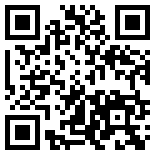關(guān)于乘火車的英語對話-佛山美聯(lián)英語
在進(jìn)行日常生活英語口語的學(xué)習(xí)中,,我們可以從網(wǎng)上下載的聽、說,、讀,、寫的英語材料來進(jìn)行學(xué)習(xí),。通過用生動(dòng)的形象,真實(shí)的畫面,優(yōu)美動(dòng)人的語言和音樂,刺激學(xué)習(xí)的興趣和求知欲。而多學(xué)多練,,進(jìn)行英語口語的練習(xí)必不可少,,佛山美聯(lián)英語小編為大家整理一些生活英語口語對話,希望大家可以從中獲得需要的知識,,本篇為您整理乘火車的英語對話,。
Useful Sentences替換句型 Will you go there by train? 你打算乘火車去那里嗎? Do you think which transportation could I chooseto go there? 你認(rèn)為我應(yīng)該選擇哪一種交通工具去那兒? It is quicker to go there by bus than by train. 乘公共汽車去那里比乘火車去那里要快。 Taking a train is rather cheaper than taking a plane. 乘火車比坐飛機(jī)便宜得多,。 The time before arrival is the most exciting periodduring your journey. 在你旅行途中,,到達(dá)之前的時(shí)候是令人興奮的。 It depends on your health, time and money. 這取決于你的健康,、時(shí)間和金錢,。 I look forward to drive there in our own car. 我希望我們開自己的汽車去那里。 Does this train carry a dining car? 這列火車有餐車嗎? Does this train have a sleeping car? 這列火車有臥鋪車廂嗎? Which platform does the train for Zurich leavefrom? 到蘇黎世的火車從哪個(gè)站臺出發(fā)?
Situational Dialogues情景對話 Harold:Can I go to Beijing by train? Conductor:Yes, of course. Harold:When does this train leave? Conductor:At half past six once a day. Harold:Does this train have a dining car? Conductor:Yes. Harold:Give me one adult and one child ticket,please. Conductor:OK. Two hundred and twenty-four yuan,please. Harold: Here you are. Conductor: Thank you. Take your tickets, please.
佛山美聯(lián)英語老師譯文: 哈羅德:我可以乘火車去北京嗎? 售票員:可以,,當(dāng)然可以,。 哈羅德:這列火車什么時(shí)候出發(fā)? 售票員:每天6點(diǎn)半有一班. 哈羅德:這列火車有餐車嗎? 售票員:有。 哈羅德:請給我一張成人票和兒童票,。 售票員:好的,。請付240元。 哈羅德:給你,。 售票員:謝謝,。請拿好你的車票。 以上就是佛山美聯(lián)英語小編為您整理的關(guān)于乘火車的英語對話,,佛山美聯(lián)英語常年開設(shè)商務(wù)英語,,成人英語,英語口語等課程,,歡迎大家進(jìn)入佛山美聯(lián)英語首頁進(jìn)行詳細(xì)了解與咨詢,。
在進(jìn)行日常生活英語口語的學(xué)習(xí)中,,我們可以從網(wǎng)上下載的聽、說,、讀,、寫的英語材料來進(jìn)行學(xué)習(xí),。通過用生動(dòng)的形象,真實(shí)的畫面,優(yōu)美動(dòng)人的語言和音樂,刺激學(xué)習(xí)的興趣和求知欲。而多學(xué)多練,,進(jìn)行英語口語的練習(xí)必不可少,,佛山美聯(lián)英語小編為大家整理一些生活英語口語對話,希望大家可以從中獲得需要的知識,,本篇為您整理乘火車的英語對話,。
Useful Sentences替換句型 Will you go there by train? 你打算乘火車去那里嗎? Do you think which transportation could I chooseto go there? 你認(rèn)為我應(yīng)該選擇哪一種交通工具去那兒? It is quicker to go there by bus than by train. 乘公共汽車去那里比乘火車去那里要快。 Taking a train is rather cheaper than taking a plane. 乘火車比坐飛機(jī)便宜得多,。 The time before arrival is the most exciting periodduring your journey. 在你旅行途中,,到達(dá)之前的時(shí)候是令人興奮的。 It depends on your health, time and money. 這取決于你的健康,、時(shí)間和金錢,。 I look forward to drive there in our own car. 我希望我們開自己的汽車去那里。 Does this train carry a dining car? 這列火車有餐車嗎? Does this train have a sleeping car? 這列火車有臥鋪車廂嗎? Which platform does the train for Zurich leavefrom? 到蘇黎世的火車從哪個(gè)站臺出發(fā)?
Situational Dialogues情景對話 Harold:Can I go to Beijing by train? Conductor:Yes, of course. Harold:When does this train leave? Conductor:At half past six once a day. Harold:Does this train have a dining car? Conductor:Yes. Harold:Give me one adult and one child ticket,please. Conductor:OK. Two hundred and twenty-four yuan,please. Harold: Here you are. Conductor: Thank you. Take your tickets, please.
佛山美聯(lián)英語老師譯文: 哈羅德:我可以乘火車去北京嗎? 售票員:可以,,當(dāng)然可以,。 哈羅德:這列火車什么時(shí)候出發(fā)? 售票員:每天6點(diǎn)半有一班. 哈羅德:這列火車有餐車嗎? 售票員:有。 哈羅德:請給我一張成人票和兒童票,。 售票員:好的,。請付240元。 哈羅德:給你,。 售票員:謝謝,。請拿好你的車票。 以上就是佛山美聯(lián)英語小編為您整理的關(guān)于乘火車的英語對話,,佛山美聯(lián)英語常年開設(shè)商務(wù)英語,,成人英語,英語口語等課程,,歡迎大家進(jìn)入佛山美聯(lián)英語首頁進(jìn)行詳細(xì)了解與咨詢,。



